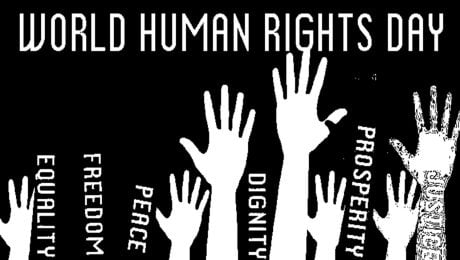Keyword: Human rights

Today is another Human Rights Day, but atrocities persist | Opinion
One such case is the experience of thousands of Turkish people under the Erdogan regime after the failed coup attempt in July 2016. Soon after the coup attempt, Erdogan’s regime launched a crackdown on opponents and critics, detaining thousands of journalists, rights activists, lawyers, teachers and writers for their alleged involvement in anti-state activities.

Disabled woman loses health care due to son-in-law’s Gülen links
Ömer Faruk Gergerlioğlu, a member of parliament from Turkey’s left wing pro-Kurdish Peoples’ Democratic Party (HDP), said the health care benefits of a gravely disabled woman were cut off because her son-in-law was a public servant dismissed from his job by government decree.

As Turks flee oppression, Ottawa urged to speak out on human rights issues
Asylum seekers are still fleeing Turkey for Canada and other western countries, Kaplan said. “There’s at least 14 families (in my neighbourhood in Ottawa). I mean ladies (with kids). All their husbands have been arrested (in Turkey,)” he said. The women are not comfortable speaking out publicly for fear it could imperil their husbands behind bars in Turkey, he added.

Amnesty laments treatment of Turkey purge victims
Those who believe they were wrongfully sacked can apply to a special commission to have their case reviewed and either be reinstated or compensated. The commission has “failed to uphold international standards and is acting as a de facto rubber stamp for the initial flawed decisions,” Andrew Gardner, Amnesty’s Turkey strategy and research manager, said.

Canada’s Green Party leader on human rights violations in Turkey: I am entirely horrified
Canada’s Green Party leader and lawmaker Elizabeth May said during a panel discussion held at the Canadian Parliament in Ottawa on widespread human rights violations in Turkey that “I am entirely horrified by the behaviour of the Turkish government. We need to be more speaking out loud.”

UN Human Rights: Turkey should promptly end its protracted state of emergency
Routine extensions of the state of emergency in Turkey have led to profound human rights violations against hundreds of thousands of people – from arbitrary deprivation of the right to work and to freedom of movement, to torture and other ill-treatment, arbitrary detentions and infringements of the rights to freedom of association and expression, according to a report* issued by the UN Human Rights Office on Tuesday.

Erdogan is transforming Turkey into a totalitarian prison
In Turkey under President Recep Tayyip Erdogan, the tweet has been turned into a crime, and a troubled democracy is being turned into a dictatorship. Gradually but inexorably, a nation that once aspired to be an exemplar of enlightened moderation is being transformed by Mr. Erdogan into a dreary totalitarian prison.

Gülen calls on int’l community to pressure Turkey over rights violations
Turkish-Islamic scholar Fethullah Gülen has made a call to the international community, asking them to warn Turkish authorities to take the necessary measures to restore the rule of law and protect fundamental human rights in the country.

Letter campaign launched for Turkey’s imprisoned women, mothers
In the aftermath of a failed coup attempt on July 15, 2016, more than 17,000 women from all walks of life including teachers, doctors and housewives have been jailed in Turkey on coup charges in government-led operations. There are currently more than 700 children accompanying their mothers in Turkish jails.

Vision-impaired journalist, under arrest for 7 months, denied access to Braille books in prison
Visually impaired Turkish journalist Cüneyt Arat, under arrest over alleged ties to the Gulen movement since July, last year, has said in a letter that he was denied access to Braille books as well as audio-described movies.






















